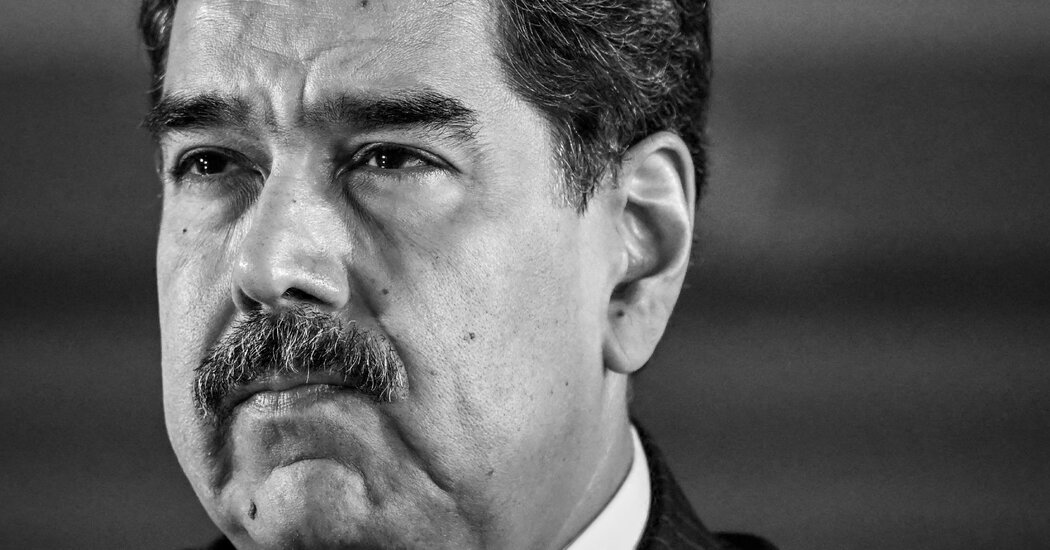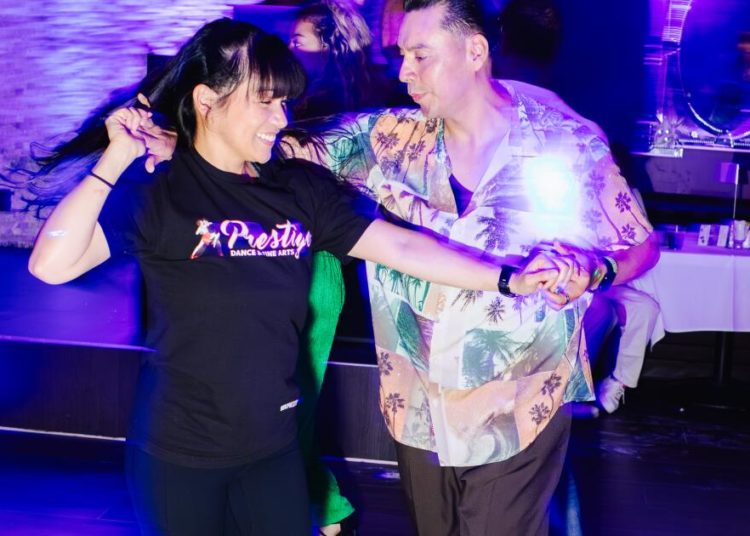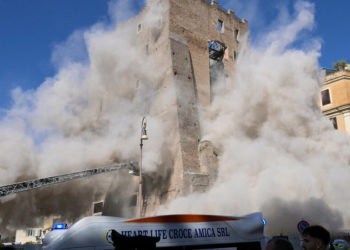For years, observers have been predicting the fall of President Nicolás Maduro. But the Venezuelan dictator has clung to power, even in the face of one of the worst economic contractions in modern history, sagging approval ratings, overwhelming electoral setbacks and severe international financial sanctions.
Mr. Maduro’s survival offers critical insight on why it is so difficult to bring down autocracies. Autocratic resilience is not accidental. It’s the result of steady repression and the co-opting of political and economic institutions. During his 12 years in power, Mr. Maduro has essentially built a two-tiered system: one that exerts quasi-totalitarian control over the vast majority of Venezuelan society, and another that functions as a lucrative, highly decentralized circle of influence, stacked with loyal allies who are rewarded with discretionary powers and economic freedoms and are deeply invested in seeing the regime survive.
Although he has never been widely popular, Mr. Maduro did not start out as a ruthless dictator. When he was elected Venezuela’s president in 2013 after the death of Hugo Chávez, he inherited a movement that largely backed him as Chávez’s handpicked successor. As oil prices collapsed and the economy cratered, whatever popular support he had eroded rapidly, leading him to abandon any pretense of democracy.
Early on in his tenure, in the face of soaring inflation, Mr. Maduro expanded the use of so-called enabling laws that allowed him to govern by decree. He went after businesses not complying with price controls and repressed a major student-led anti-government protest.
As time went on, Mr. Maduro began to establish the first tier of his dictatorship in earnest, drawing from the standard authoritarian tool kit. He went after key political figures, arresting opposition party leaders Leopoldo López and Antonio Ledezma and barring María Corina Machado, then a congresswoman and the most recent winner of the Nobel Peace Prize, from public office for a year. He started managing elections with a heavier hand — altering election timetables to his advantage, blocking a referendum that could have recalled him, creating fake opposition groups, using government handouts to influence votes and outright banning opposition candidates and parties from running.
He spent the next decade packing the courts with compliant judges, weaponizing the law to silence his critics, spying on the armed forces and unleashing brutal suppression on citizens who protested his rule. These tactics reached their apex in 2024 when Mr. Maduro, having apparently lost the presidential election to an opposition force organized by Ms. Machado, wielded a combination of electoral manipulation, a loyal judiciary and armed crackdowns to declare a victory.
The second tier of Mr. Maduro’s dictatorship, and perhaps the most important and distinctive element of his survival strategy, is what I call “function fusion”: granting existing institutions or groups the authority to perform economic roles traditionally reserved for other groups. This maneuver has allowed the Maduro regime to co-opt a critical mass of institutions and actors, turning them into fervent supporters of the status quo.
Mr. Maduro has allowed high-ranking members of the military and the judiciary to engage in widespread business activity, legal and otherwise. Officers run state-owned enterprises, establish private firms that profit from state contracts and are involved in illicit smuggling networks involving gasoline, minerals and drugs. These soldier-businessmen make fortunes while the rest of society stands in line for food. They know that their economic prosperity depends on the grace of the dictator.
Mr. Maduro has likewise co-opted colectivos, organized civilian networks that Mr. Chávez had originally tasked with neighborhood organization. Under Mr. Maduro, many of these colectivos have been weaponized as paramilitary shock forces. In exchange for suppressing dissent, these groups are granted unofficial license to loot. This largely spares the official armed forces from having to carry out the dirtiest job of all — repressing civilians — while giving the regime plausible deniability.
The Maduro regime seems to have created power-sharing arrangements with foreign armed groups, effectively handing over parts of Venezuelan territory to dissident elements of Colombia’s FARC and ELN guerrilla movements. Under pressure from the Colombian government, these armed organizations have increasingly used Venezuela as a safe haven and foothold for illicit activities, including illegal mining and drug trafficking. In return, analysts believe, they relieve the government of basic state services in remote territories — and may help the state bypass international sanctions through smuggling.
This system both fuels and thrives off Venezuela’s economic calamity. Because only those within Mr. Maduro’s inner circle are shielded from the arbitrariness of the state, the private sector has withered, meaning that not enough goods and services are produced in Venezuela to meet demand. Economic suffocation makes being a part of the inner confederacy ever more appealing. The vast majority of those not on the inside are consigned to a life of poverty, repression and hopelessness. It should come as no surprise, then, that millions of Venezuelans have chosen the ultimate outside status: migration.
Mr. Maduro’s bet is a risky one. His system has cultivated regime insiders who are arguably more powerful than you’d find in other autocracies; they could probably collectively push Mr. Maduro out of power if they wanted to. The Trump administration may be hoping that the U.S. military’s show of force in the Caribbean — and threats of ground strikes within Venezuela — may prompt this kind of mutiny.
But even if these groups did revolt and successfully pressured Mr. Maduro into stepping aside, it is hard to say what would happen next. Many would almost certainly be acting not with the intention of fomenting total regime change, but of trading out Mr. Maduro for another figurehead who would preserve the exclusive networks of patronage that sustain them.
This is the core challenge for any future attempts to dismantle the dictatorship in Venezuela. Civil society cannot realistically muster the resources needed to dislodge the political structure Mr. Maduro has built. Anyone seeking to establish a new political order would likely need the cooperation of the regime’s internal confederacy. But the members of this privileged class will be unwilling to cooperate with efforts that involve the destruction of the system on which they thrive.
And even if a member of the opposition were to replace Mr. Maduro, it would not necessarily yield democracy in Venezuela. A new state apparatus with institutional checks and balances would effectively need to be built from scratch — or the country’s new political winners could well recreate the deeply corrupt, coercive and unequal system that has so successfully entrenched Mr. Maduro’s rule.
Mr. Maduro may be hated by most of society and disliked by many of his associates. But he has proved a canny architect of his regime — one in which the only people who can truly tear down the system are the ones with the most to lose from its demise.
Javier Corrales is a professor of political science at Amherst College and the author of “Autocracy Rising: How Venezuela Transitioned to Authoritarianism.”
The Times is committed to publishing a diversity of letters to the editor. We’d like to hear what you think about this or any of our articles. Here are some tips. And here’s our email: [email protected].
Follow the New York Times Opinion section on Facebook, Instagram, TikTok, Bluesky, WhatsApp and Threads.
The post Maduro Might Not Last. But His System Could Survive. appeared first on New York Times.




